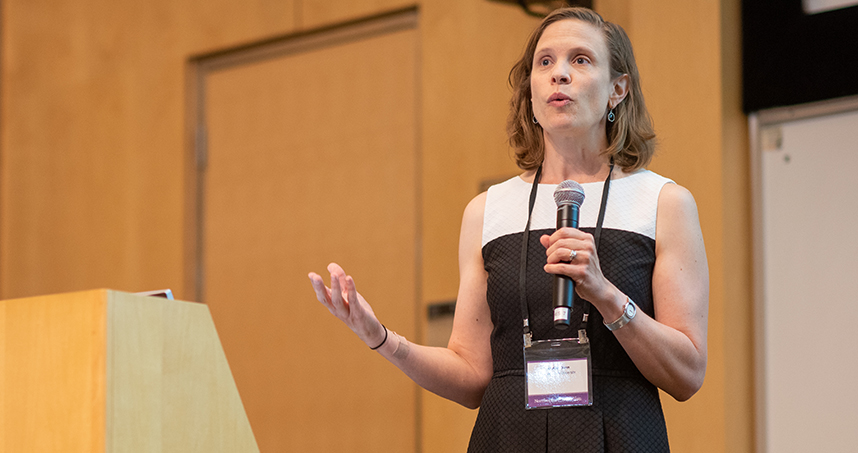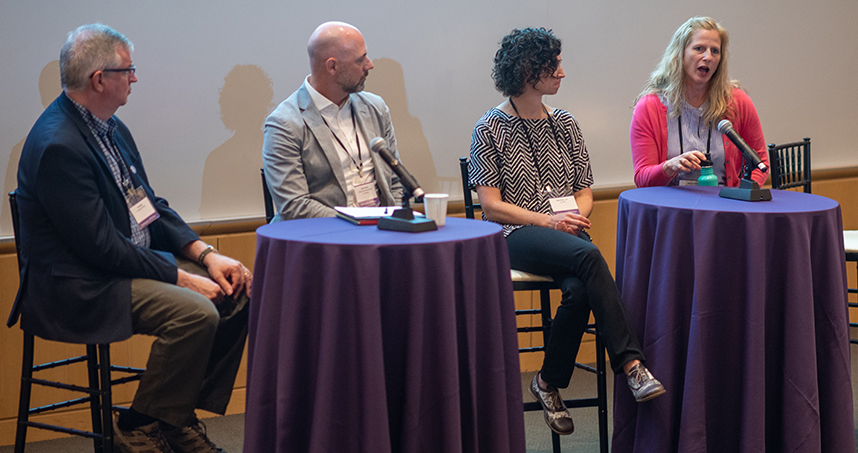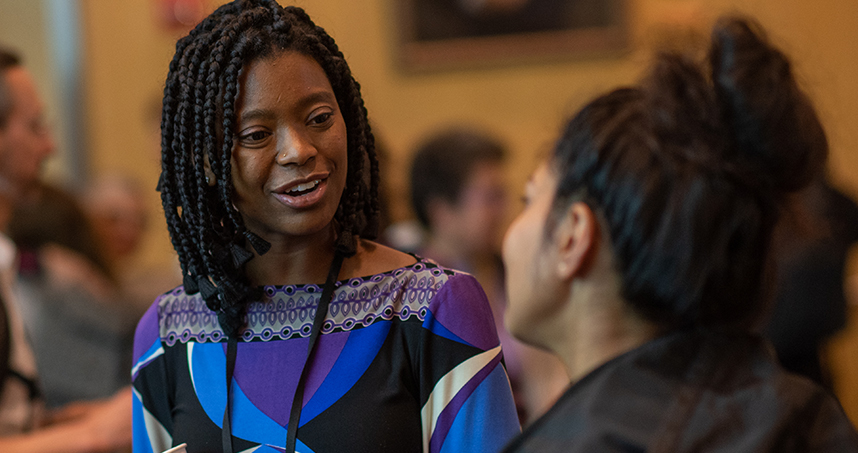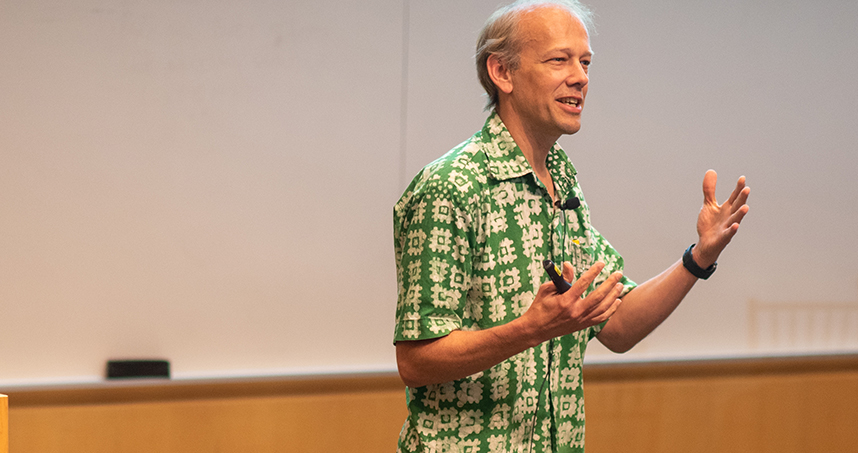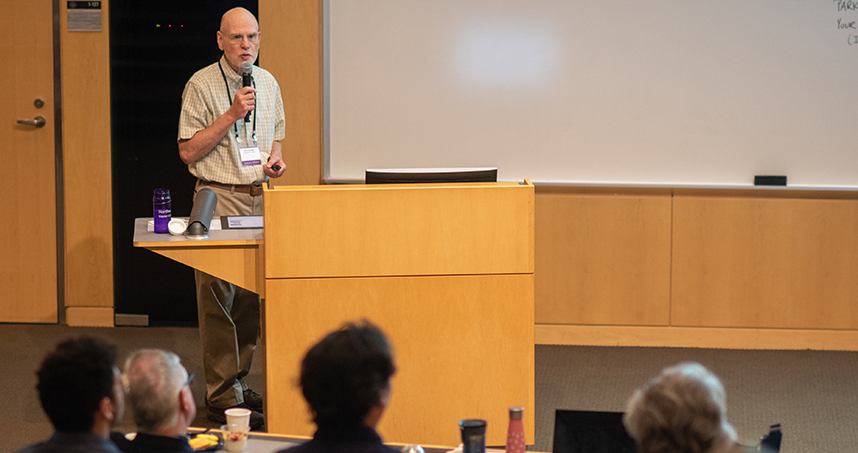Center for Engineering Sustainability and Resilience Hosts Workshop on Sustainable Urban Systems
Nearly 150 stakeholders attended the SUSPIRE workshop on Northwestern’s downtown campus
Nearly 150 Chicago area community members and stakeholders from a diverse range of industries and organizations gathered for the Sustainable Urban Systems: Predictive, Interconnected, Resilient, and Evolving (SUSPIRE) workshop on Northwestern University’s downtown campus on July 16-17.
Hosted by Northwestern Engineering’s new Center for Engineering Sustainability and Resilience (CESR), alongside Argonne National Laboratory, the University of Chicago, and the Illinois Center for Urban Resilience and Environmental Sustainability, the workshop discussed ways to improve sustainability and quality of life within the Chicago region by addressing how climate, natural, technological, and societal disruptions will transform urban systems. SUSPIRE is part of a series of workshops on sustainable urban systems sponsored by the National Science Foundation.
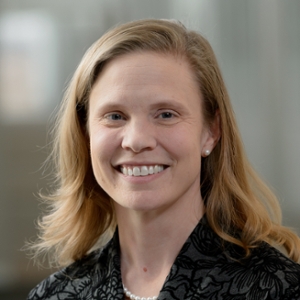 “This brings a very rich opportunity to consider the science behind interactions between networks and systems, in addition to the real-world impacts that we experience as transitions occur,” said Jennifer Dunn, McCormick School of Engineering research associate professor who directs CESR alongside Bill Miller, professor of chemical and biological engineering.
“This brings a very rich opportunity to consider the science behind interactions between networks and systems, in addition to the real-world impacts that we experience as transitions occur,” said Jennifer Dunn, McCormick School of Engineering research associate professor who directs CESR alongside Bill Miller, professor of chemical and biological engineering.
The two-day conference included participants from academia, community organizations, and government entities, discussing new strategies to advance a sustainable urban systems research network that not only addresses science and engineering topics, but also social, behavioral, and economic considerations.
“We are interested in understanding future opportunities and difficulties in urban systems, especially as we look at resilience,” said Pete Beckman, senior computer scientist at Argonne National Laboratory and codirector of the Northwestern Argonne Institute of Science and Engineering, during the conference welcome. “As the world changes, as climate changes, the city, our ecosystem, and our green spaces, will respond differently. Being able to predict risks in these areas is very important for a city.”
Along with Beckman, Susan Popkin, Institute Fellow and director of the Housing Opportunities and Services Together Initiative at The Urban Institute, William Abolt, vice president, energy at AECOM, and Sarah Murdock, director of US climate resilience and water policy at The Nature Conservancy gave keynote addresses.
Murdock addressed the expectation that two-thirds of the world’s population will be living in cities by 2050, bringing about an array of sustainability challenges in urban environments. In response, she discussed the efficacy and cost-effectiveness of utilizing green infrastructure in cities such as rain gardens, waterfront parks, urban trees, and green parking lots.
“We have a vision of thriving urban areas that are part of nature, not apart from nature,” Murdock said, “where people and nature both thrive, where nature is an essential element that ensures a resilient, healthy, and equitable community.”
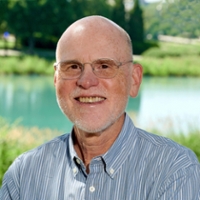 The workshop included panel discussions with representatives from diverse institutions, including the Chicago Metropolitan Agency for Planning, the Metropolitan Water Reclamation District of Greater Chicago, Chicago Community Trust, Bronzeville Urban Development, SURGE Institute, The Plant, Calumet Collaborative, and the Center for Neighborhood Technology.
The workshop included panel discussions with representatives from diverse institutions, including the Chicago Metropolitan Agency for Planning, the Metropolitan Water Reclamation District of Greater Chicago, Chicago Community Trust, Bronzeville Urban Development, SURGE Institute, The Plant, Calumet Collaborative, and the Center for Neighborhood Technology.
“To grow and prosper sustainably into the next century, we must be ready for novel and wildly changing climate,” said Katherine Moore Powell, climate change ecologist at the Field Museum, who served as a moderator during the panels.
To encourage continued engagement after the workshop, participants collaborated during breakout sessions to discuss diverse urban systems and create near-term plans to promote a sustainable and resilient Chicago.
“NSF has charged these workshops with charting a research agenda,” Miller said. “We’re really interested in identifying activities that bring together people from diverse perspectives. Do all the science you want, but if you’re not connected with the community early in the process to see what they need and what works for them, it’s not going to work.”
